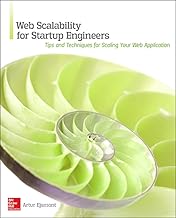
Web Scalability for Startup Engineers
Artur Ejsmont
4.8 on Amazon
6 HN comments
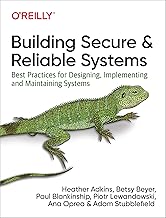
Building Secure and Reliable Systems: Best Practices for Designing, Implementing, and Maintaining Systems
Heather Adkins, Betsy Beyer , et al.
4.7 on Amazon
6 HN comments
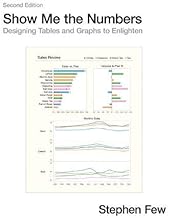
Show Me the Numbers: Designing Tables and Graphs to Enlighten
Stephen Few
4.5 on Amazon
6 HN comments

Database Internals: A Deep Dive into How Distributed Data Systems Work
Alex Petrov
4.7 on Amazon
6 HN comments

Whatever It Takes: Master the Habits to Transform Your Business, Relationships, and Life
Brandon Bornancin
4.8 on Amazon
6 HN comments

Kubernetes: Up and Running: Dive into the Future of Infrastructure
Brendan Burns , Joe Beda, et al.
4.6 on Amazon
6 HN comments

Python for Kids: A Playful Introduction to Programming
Jason R. Briggs
4.6 on Amazon
6 HN comments

The Phoenix Project (A Novel About IT, DevOps, and Helping Your Business Win)
Gene Kim
4.7 on Amazon
6 HN comments

Terraform: Up & Running: Writing Infrastructure as Code
Yevgeniy Brikman
4.6 on Amazon
6 HN comments

A World Without Email: Reimagining Work in an Age of Communication Overload
Cal Newport, Kevin R. Free, et al.
4.5 on Amazon
5 HN comments

Discovering Statistics Using R
Andy Field, Jeremy Miles , et al.
4.5 on Amazon
5 HN comments
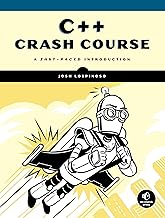
C++ Crash Course: A Fast-Paced Introduction
Josh Lospinoso
4.7 on Amazon
5 HN comments

Irresistible: The Rise of Addictive Technology and the Business of Keeping Us Hooked
Adam Alter and Penguin Audio
4.6 on Amazon
5 HN comments
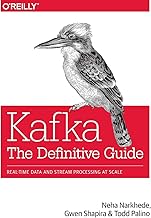
Kafka: The Definitive Guide: Real-Time Data and Stream Processing at Scale
Neha Narkhede , Gwen Shapira, et al.
4.4 on Amazon
5 HN comments
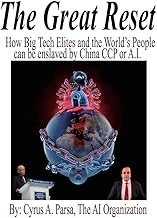
The Great Reset: How Big Tech Elites and the World's People Can Be Enslaved by China CCP or A.I.
Cyrus Parsa and The AI Organization
4.5 on Amazon
5 HN comments
eightyoneonJune 16, 2013
http://www.amazon.com/Python-Kids-Playful-Introduction-Progr...
justboxingonMar 21, 2017
This was (and still is) 1 major factor holding me back from trying to publish a technical book. They are so easily pirated.
westurneronDec 12, 2017
Other great STEM and computers books for kids:
"A is for Array"
"Lift-the-Flap Computers and Coding"
"Computational Fairy Tales"
"Hello Ruby: Adventures in Coding"
"Python for Kids: A Playful Introduction To Programming"
"Lauren Ipsum: A Story About Computer Science and Other Improbable Things"
"Rosie Revere, Engineer"
"Ada Byron Lovelace and the Thinking Machine"
"HTML for Babies: Volume 1 of Web Design for Babies"
"What Do You Do With a Problem?"
"What Do You Do With an Idea?"
"ABCs of Mathematics",
"The Pythagorean Theorem for Babies",
"Non-Euclidian Geometry for Babies",
"Introductory Calculus for Infants",
"ABCs of Physics",
"Statistical Physics for Babies",
"Netwonian Physics for Babies",
"Optical Physics for Babies",
"General Relativity for Babies",
"Quantum Physics for Babies", "Quantum Information for Babies", "Quantum Entanglement for Babies"
"ELI5": "Explain like I'm five"
Someone should really make a list of these.
stickhandleonApr 1, 2013
tmalyonJune 28, 2018
I was at a steam fair last weekend, and they had the OhBot, a programmable robot face, on display. It is programmed with what appeared to be a version of Scratch. You could control the head, mouth, and eyes with the track pad and keys. Kids were really into that and there was quite a line at that table.
Thinkfun also has a good board game to teach programming logic called Code Master Programming Logic Game.
If you really do want to go a more abstract route, I would start with the Python for Kids book by Jason Briggs. Once he gets through that, get the Python Crash Course next and work through the 3 problems in that book. It has one where you make a Django app with a user login.
tyngonJuly 5, 2013
I find codecademy.com to be a fun and well structured way to learn Python. To me it may well replace the "Python for Kids" book recommended in your blog post since codecademy is free and provides instant feedback on exercises (best way to keep the motivation high!). After completing the codecademy course I'll definitely get myself a proper book to learn the language in more depth.
One thing I'm struggling with is to find mini-projects that I can build and practice with as I learn more codes. As a beginner I may come up with a mini-project idea without realising how big the project can get to or the level of skill is required. If you could suggest a few project ideas with incremental difficulty as well as novel ways for a beginner to think about programming would be really helpful.
To me the most valuable part of your blog post was mapping out the Python > SQL > HTML/CSS > framework learning path. This was another question I had in mind ("what's next after Python?") because as a beginner I really had no big picture view of what skills I need to acquire. So thanks heaps for writing up the post and I look forward to reading your follow-up!